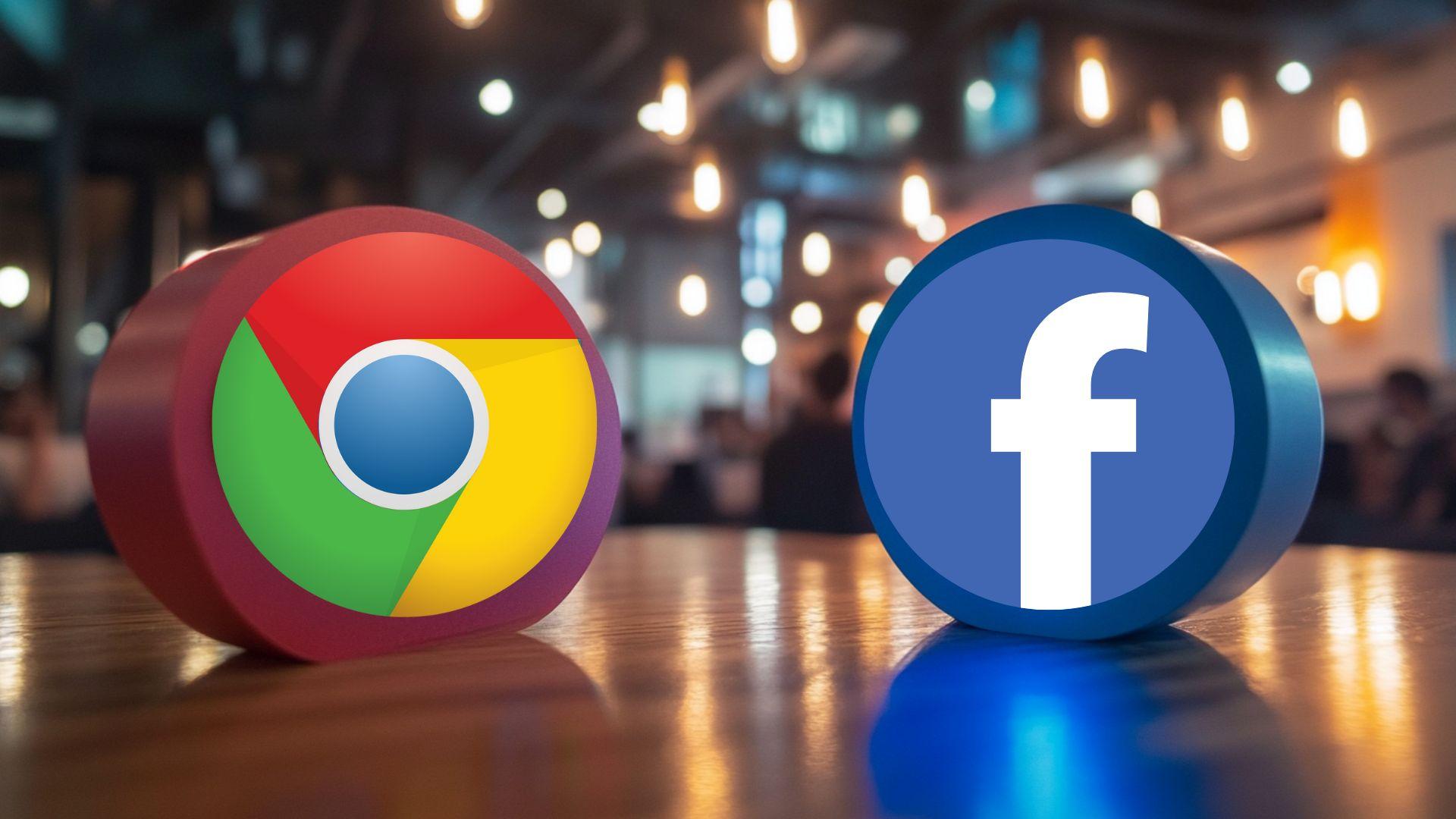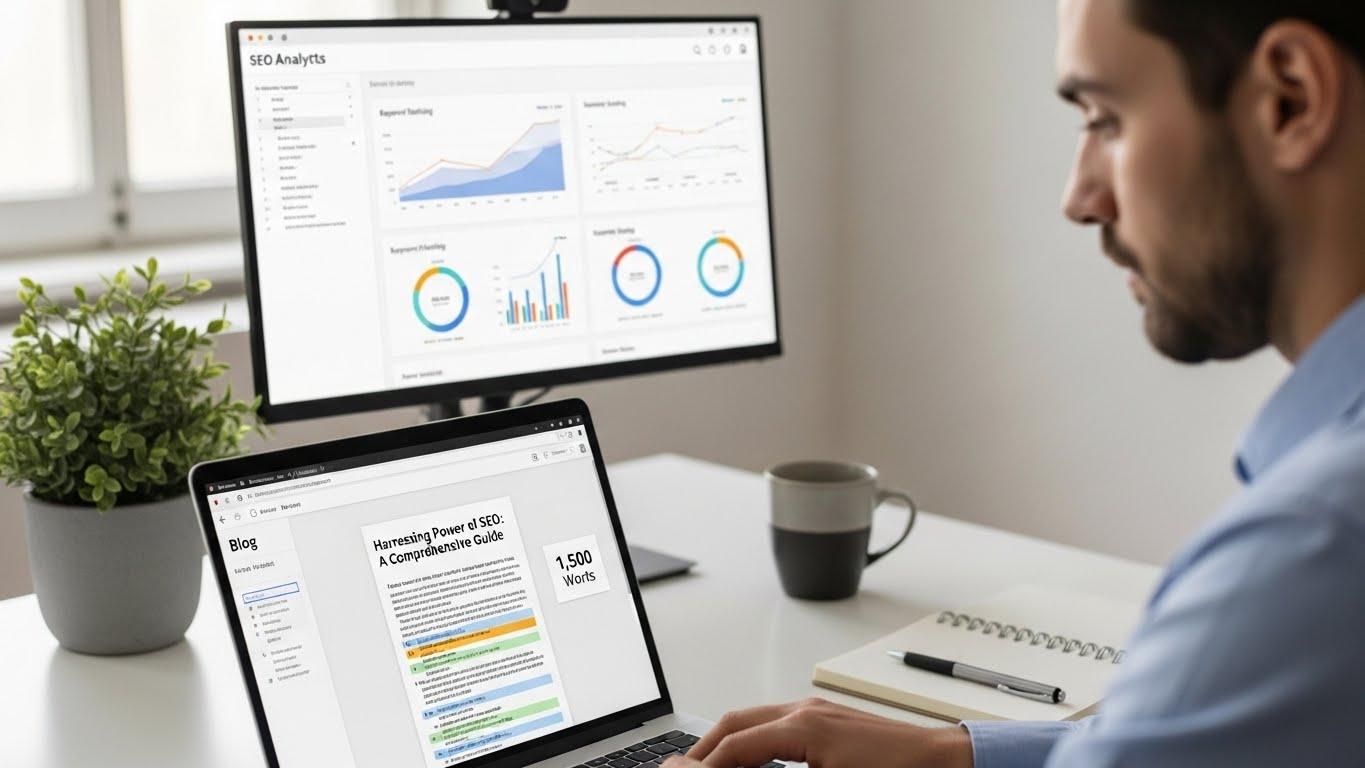
Digital advertising is more competitive than ever in 2025. Let's explore Google Ads and Facebook Ads. They dominate the landscape, each offering unique strengths. Google Ads captures intent-driven searches. It connects businesses with users who are actively seeking solutions. Google's vast reach spans search, display, and YouTube, all powered by AI-driven targeting. Facebook Ads, as part of Meta's ecosystem, excels at precise audience segmentation. It leverages rich user data for personalized campaigns across Facebook, Instagram, and WhatsApp. The right platform choice depends on your specific business goals.
Brand awareness favors Meta's visual storytelling. Conversions often lean toward Google's search dominance. Evolving trends, including privacy regulations and AI ad optimization, are shaping advertising strategies. As user behavior shifts toward mobile and video content, advertisers must create more agile campaigns. The Google Ads vs. Facebook Ads decision is crucial because misaligned ad spend can waste entire budgets. This article breaks down their strengths, weaknesses, and 2025 trends. This analysis will guide your PPC strategy for maximum ROI. So, let's begin.
Key Differences Between Google Ads and Facebook Ads in 2025
In 2025, comparing PPC platforms reveals distinct strengths for both Google Ads and Facebook Ads. These differences are primarily driven by user intent, targeting capabilities, ad formats, and overall reach. Here's a detailed comparison of these PPC platforms:
- Targeting: Google uses keyword-driven precision across Search, Display, and YouTube. Facebook leverages Meta's rich data for hyper-specific audience segmentation. It targets by age, interests, or life events across Facebook, Instagram, and WhatsApp.
- User Intent: Google Ads captures high-intent users via search queries. It delivers ads to those actively seeking products or services. Google search campaigns' key value proposition is their ability to target users who are ready to convert. Facebook Ads focus on interest-based targeting. It reaches users based on behaviors, preferences, and demographics. This is ideal for building brand awareness.
- Formats: Google offers text, shopping, video ads, and display banners. These formats cater to diverse marketing goals. Facebook excels with visual carousels, stories, and immersive video ads. These ads are optimized for mobile-first audiences.
- Reach: Google's ecosystem spans billions of daily searches and partner sites. This ecosystem offers unmatched scale. Facebook's network, which includes Instagram and WhatsApp, reaches over 3 billion monthly users with an emphasis on social engagement.
Choosing between Google Ads vs. Instagram Ads depends on your goal. It can be immediate conversions or long-term brand building in 2025's dynamic ad landscape.
What Works Best for E-Commerce, B2B, and Local Businesses
In 2025, success with Google and Facebook Ads depends on aligning platform strengths with specific business models. Here's how each platform serves e-commerce, B2B, and local businesses:
- E-Commerce: Google Shopping ads dominate e-commerce. They showcase products directly in search results, capturing high-intent buyers. Google Ads often outperforms Facebook Ads for conversions due to its intent-driven reach. Facebook ads prove effective through their dynamic product advertising capabilities. These ads retarget cart abandoners with visually engaging carousel formats. This retargeting occurs across Instagram and Facebook, significantly boosting brand recall.
- B2B: Google Ads excels in lead generation. It targets decision-makers who are searching for solutions via precise keywords. Its Display Network nurtures leads across professional sites. While less intent-focused, Facebook builds B2B interest through thought leadership content and precise demographic targeting. Facebook Ads are effective because they help foster long-term B2B relationships.
- Local Businesses: Google's Local Service Ads connect businesses with nearby customers when they're actively searching for local services. This approach emphasizes proximity and trust factors. Facebook also leverages community engagement across Facebook and Instagram. These capabilities make Facebook ideal for promoting local events and special offers.
Choosing Facebook Ads vs. Google Ads depends on goals. Consider all these factors when making your platform decision. Google drives immediate action for e-commerce and B2B. Facebook's visual storytelling and retargeting shine for engagement and local reach in 2025.
Cost-Effectiveness and ROI: Where Does Your Money Go Further?

In 2025, which platform offers better cost-effectiveness: Google or Facebook Ads? It depends on your goals. Here's how Google and Facebook Ads compare in terms of cost and ROI:
- CPC, CPM, and CPA: Google Ads often has higher CPCs (e.g., $1–$3 for competitive keywords). This reflects the value of intent-driven searches, though CPAs can be lower when conversions are the goal. Facebook Ads typically offer lower CPMs ($5–$15) for brand awareness. This advantage comes from Facebook's precise targeting capabilities. Facebook ads excel with cost-efficient impressions that work well for broad awareness campaigns.
- ROAS Expectations: E-commerce sees strong ROAS on Google Shopping (4:1–8:1). This performance is driven by high-intent traffic. B2B campaigns on Google yield steady leads but slower returns. Through retargeting capabilities, Facebook excels for retail and lifestyle brands, achieving 3:1–6:1 ROAS. Measure ROI via conversion tracking, Google Analytics, or Meta Pixel.
- Budget Control and Bidding: Google's advanced advertising platform includes automated bidding features. Tools like Maximize Conversions help optimize campaigns for better ROAS. Facebook's Ads Manager allows flexible budgets with Campaign Budget Optimization. This is ideal for testing audiences. Both platforms support manual and automated bidding for control.
Google maximizes ROI for conversions; Facebook stretches budgets for engagement. Track ROAS and adjust bids to ensure your money goes further in 2025.
Targeting & Audience Precision in 2025: AI, Data, and Intent
In 2025, the choice between Facebook and Google ads depends heavily on targeting precision, both powered by AI and data. This comparison shows how each platform leverages user intent and data integrations. These capabilities help advertisers reach their ideal audiences. Here's how they stack up:
- Facebook Ads – Interests, Behaviors, Lookalikes: As part of Meta's ecosystem, Facebook leverages rich user data for hyper-specific audience targeting. Advertisers can pinpoint audiences by interests and behaviors. Advertisers can also be targeted by demographics across Facebook, Instagram, and WhatsApp. Lookalike audiences expand reach by mimicking existing customers. Facebook's AI optimizes ad delivery to maximize engagement, making it ideal for brand awareness campaigns. This optimization makes Facebook particularly effective for brand awareness and retargeting campaigns.
- Google Ads – Keyword + Intent Targeting: Google excels at capturing high-intent audiences. Google achieves this through sophisticated keyword-driven targeting. Google's AI, enhanced by Performance Max campaigns, analyzes search queries, user context, and browsing history to serve ads on Search, Display, and YouTube. For example, a user searching "best running shoes" sees tailored ads instantly. Dynamic Search Ads and responsive formats further refine precision, ensuring relevance. Google's strength lies in aligning ads with active purchase intent. It delivers high conversion rates.
- Integration Tactics: To target Facebook ads based on Google search behavior, use Google Analytics to identify high-performing search terms. Then create Facebook custom audiences based on website visitors from those specific searches. For instance, retarget users who search for "luxury watches" on Google with Facebook carousel ads. Pixel integration and CRM data syncing enhance cross-platform precision. This approach bridges intent-driven traffic from Google with engagement-focused campaigns on Facebook.
- AI-Driven Precision in 2025: Both platforms use AI to predict user behavior. Google's predictive models optimize bids for conversions. Facebook's algorithms refine audience segments in real time. Privacy regulations push reliance on first-party data. This shift makes custom audiences and CRM integrations increasingly critical.
Google dominates for intent-driven conversions; Facebook shines for broad, behavior-based reach. Combining via data integrations maximizes audience precision in 2025's AI-driven ad landscape.
Which Ad Platform Should You Choose? Our Final Verdict by Use Case
In 2025, choosing the right platform requires aligning your selection with specific business objectives. Your choice must align advertising strategies with business goals, available budgets, and team expertise. The debate on Google vs. Facebook Ads depends on your needs. Here's our verdict by use case:
- Quick Lead Generation: Google Ads is ideal for immediate leads, especially high-intent searches. SaaS and high-ticket B2B businesses benefit from Google's keyword-driven targeting. It captures decision-makers ready to act. Google's search campaigns often outperform Facebook for conversions due to their intent-driven nature. Recommended for businesses with $500+/month budgets and moderate ad experience.
- Long-Term Brand Awareness: Facebook excels through visual formats like carousels and stories, combined with precise audience targeting. It suits eCommerce, retail, and lifestyle brands. Low-budget businesses ($200–$500/month) leverage cost-effective CPMs. Beginners find Facebook's intuitive Ads Manager easier to navigate than Google's complex interface.
- High-Ticket B2B: Google Ads drives targeted B2B leads via search and Display Network. This approach is ideal for SaaS companies and professional service providers in 2025. Combine with LinkedIn for niche targeting if budget allows. Experienced advertisers with $1,000+/month budgets can maximize ROI. This ROI optimization is possible through automated bidding strategies and CRM integrations.
- Local Services: Google's Local Service Ads dominate for plumbers or salons by connecting businesses with nearby customers. Facebook's hyper-local targeting complements this, promoting events or offers to community audiences. Best for small budgets ($200–$1,000/month) and beginners.
- When to Combine Both: Combining platforms boosts results for e-commerce and mid-sized businesses. Use Google for driving conversions through Shopping Ads, while leveraging Facebook for retargeting with dynamic product ads. Advanced digital advertising strategies, such as cross-platform retargeting, leverage Google Analytics data. This data informs Facebook custom audience creation and helps maximize ROAS. Requires $1,000+/month and intermediate expertise.
Choose Google for high-intent conversions (SaaS, B2B, local services) and Facebook. Facebook is crucial for engagement-focused campaigns in eCommerce and brand awareness. Combine both for integrated funnels if budget and skills allow. Test small, track ROAS, and scale what works in 2025's competitive ad landscape. Contact us to get professional help.
learn with mettevo
view blog


Are You Ready To Grow Your Website?
Understanding the ins and outs of website growth, we help ensure that your site grows over time with ever-increasing reach and accessibility. Not only do we employ the latest digital marketing techniques for driving traffic directly to your website, but our strategies also focus on gaining loyalty from those visitors so they come back again and again.
Leave your contacts to get a comprehensive and aggressive digital marketing plan taking your business to new heights.